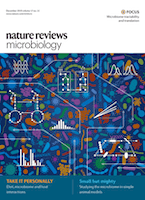
NATURE REVIEWS MICROBIOLOGY
Scope & Guideline
Navigating the Cutting-Edge of Microbial Research
Introduction
Aims and Scopes
- Antimicrobial Resistance Research:
The journal consistently emphasizes research on antimicrobial resistance (AMR), exploring its mechanisms, impacts on public health, and strategies for intervention. - Microbiome Studies:
A significant focus on the human microbiome and its implications for health and disease, including interactions between microbial communities and their hosts. - Environmental Microbiology:
Research on microbial roles in environmental contexts, including climate change impacts, soil microbiomes, and biogeochemical cycles. - Pathogen Evolution and Control:
Exploration of pathogen evolution, transmission dynamics, and novel therapeutic strategies to combat infectious diseases. - Technological Advancements in Microbiology:
Highlighting innovative methodologies, including synthetic microbiology and machine learning applications to deepen our understanding of microbial systems.
Trending and Emerging
- Interdisciplinary Approaches to Microbiology:
An increasing trend towards integrating microbiology with fields such as ecology, epidemiology, and data science, reflecting a holistic view of microbial interactions and their implications. - Climate Change and Microbial Interactions:
Research exploring the relationship between climate change and microbial dynamics is on the rise, highlighting the role of microbes in ecological responses to environmental changes. - Innovations in Microbial Therapeutics:
A growing focus on the development of novel therapeutic strategies, including phage therapy and engineered microbes, to address antibiotic resistance and infectious diseases. - Microbial Ecology in Health and Disease:
Emerging themes emphasize the importance of microbial ecology in understanding diseases, particularly the interactions between the microbiome and host immune responses. - Synthetic Biology and Microbial Engineering:
An uptick in research related to synthetic biology, where researchers are engineering microbes for applications in health, agriculture, and environmental sustainability.
Declining or Waning
- Traditional Antibiotic Discovery:
Research focused solely on traditional antibiotic discovery methods is waning, as the field increasingly emphasizes novel approaches and alternatives to combat resistance. - Single-Organism Studies:
There is a noticeable decrease in studies concentrating on single microbial species, with a growing preference for research that examines complex microbial communities and their interactions. - Basic Microbial Physiology:
While foundational studies remain important, there has been a shift away from purely physiological studies towards more applied research that connects microbial function with health and disease outcomes.
Similar Journals

MEDICAL MICROBIOLOGY AND IMMUNOLOGY
Illuminating the critical links between pathogens and immune defense.Medical Microbiology and Immunology is a renowned journal published by Springer, serving as a pivotal resource in the fields of microbiology and immunology. Established in 1971 and continuing its legacy through 2024, this journal features cutting-edge research and reviews that address critical advancements and challenges within these dynamic fields. With an impressive impact factor and a robust ranking, including Q1 categories in both Microbiology (medical) and Immunology, it stands at the forefront of scholarly communication, ranking 21st out of 140 in the realm of Medical Microbiology. Researchers and professionals are encouraged to explore a variety of studies that delve into the interactions between microorganisms and the immune system, making it an essential resource for anyone fascinated by these interconnected realms of health sciences. Although not open access, the journal is widely accessible through institutional libraries, ensuring that significant findings reach a global audience. The University of New York Plaza serves as its operational hub in the USA, reinforcing its international influence and dedication to advancing knowledge in microbiology and immunology.

Mediterranean Journal of Infection Microbes and Antimicrobials
Innovating solutions for a healthier tomorrow.Mediterranean Journal of Infection Microbes and Antimicrobials is a distinguished open-access journal published by GALENOS PUBL HOUSE, dedicated to advancing the understanding of infectious diseases and microbiology. Since its inception in 2011, this journal has been a vital resource for researchers, professionals, and students interested in the intricate world of microbes and their impacts on human health. With its ISSN 2147-673X, the journal has progressively gained visibility, although it currently holds a Q4 ranking in multiple categories including Immunology and Microbiology, and Infectious Diseases for the year 2023. The journal operates from its headquarters in Istanbul, Turkey, and features a rich array of articles that contribute to the field’s body of knowledge. As a platform enhancing the accessibility of research, it invites submissions from global contributors to foster collaboration and innovation in tackling microbial challenges.

Jundishapur Journal of Microbiology
Innovating insights into medical microbiology and public health.Welcome to the Jundishapur Journal of Microbiology, a peer-reviewed publication dedicated to advancing the field of microbiology. Published by BRIEFLAND, this journal focuses on key areas such as infectious diseases and medical microbiology, offering a platform for researchers to share their findings from 2009 to 2024. Despite its current positioning in Quartile 4 across various categories in 2023, the journal provides a valuable resource for budding scientists and established professionals alike, contributing to the growing body of knowledge in these critical areas. While it is not an open-access journal, the Jundishapur Journal prioritizes the dissemination of research in the Netherlands, facilitating a deeper understanding of microbial science and its implications for public health. Join a community of innovators committed to exploring both emerging and established themes in microbiology.
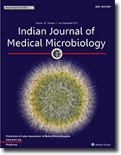
Indian Journal of Medical Microbiology
Advancing the Frontiers of Medical MicrobiologyIndian Journal of Medical Microbiology, published by Elsevier, is a pivotal peer-reviewed journal dedicated to the field of medical microbiology, providing a vital platform for research and scholarship since its inception in 1986. With an Open Access model established in 2001, it ensures the dissemination of scientific knowledge to a global audience, enhancing accessibility for researchers, professionals, and students alike. The journal's scope spans critical areas including immunology, infectious diseases, and microbiology, with an impressive trajectory marked by converged years of publication allowing for a comprehensive exploration of evolving scientific trends. As of 2023, the journal holds a Q3 ranking in Infectious Diseases and Microbiology (medical) and a Q4 ranking in Immunology and Microbiology categories, reflecting its significant yet growing impact in the field. Researchers seeking to contribute to or stay updated on the latest advancements in medical microbiology will find the Indian Journal of Medical Microbiology a valuable resource, as it consistently bridges the gap between emerging science and clinical application.

mLife
Driving impactful discoveries in the diverse landscapes of microbiology.Welcome to mLife, an emerging journal at the forefront of microbiological research published by the esteemed WILEY in China. With its ISSN 2097-1699 and E-ISSN 2770-100X, mLife serves as a vital platform for scholars and practitioners aiming to advance their understanding of microbial sciences. With an impressive Q2 ranking in the Microbiology category and a Scopus rank of 143 out of 182, mLife is quickly establishing itself as a valuable source of cutting-edge research. The journal, covering a range of innovative topics from immunology to environmental microbiology, provides an engaging venue for disseminating high-quality research findings aimed at addressing real-world challenges. Authors and readers alike benefit from its accessibility features that encourage scholarly collaboration and information sharing. As we converge on the rich microbial landscapes from 2022 to 2024, mLife is committed to fostering a community dedicated to rigorous research and impactful discoveries.

TRENDS IN MICROBIOLOGY
Uncovering Trends that Transform Microbial UnderstandingTRENDS IN MICROBIOLOGY is a premier academic journal published by CELL PRESS, renowned for its high-impact research contributions in the fields of microbiology, infectious diseases, medical microbiology, and virology. With an impressive impact factor and a notable Scopus ranking—placing it in the top tiers of its categories, including a remarkable Q1 status in multiple disciplines—this journal is essential for researchers, professionals, and students aiming to stay at the forefront of innovative microbial research and ongoing advancements in pathogen biology. Since its inception in 1993, TRENDS IN MICROBIOLOGY has provided a platform for thought-provoking reviews and critical insights, fostering discussions that shape the future of the microbiological sciences. Based in the United Kingdom, TRENDS IN MICROBIOLOGY continues to lead the way in disseminating vital knowledge within the global scientific community.

CRITICAL REVIEWS IN MICROBIOLOGY
Driving Progress in Applied MicrobiologyCRITICAL REVIEWS IN MICROBIOLOGY, published by Taylor & Francis Ltd, is a leading peer-reviewed journal that has made significant contributions to the field of microbiology since its inception in 1971. With a prestigious Q1 ranking in Applied Microbiology and Biotechnology, as well as in Medicine and Microbiology, this journal is recognized for its high-quality reviews that synthesize current research and emerging trends in the discipline. Researchers and professionals rely on its comprehensive evaluations and critical insights, helping to advance knowledge and application in various microbiological contexts. Although the journal does not currently operate under an open access model, it remains an invaluable resource for academics seeking to stay at the forefront of microbiological advances. With a consistent publication record, CRITICAL REVIEWS IN MICROBIOLOGY continues to support the scholarly community by addressing key issues and innovations within the field.
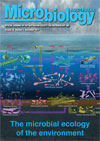
Microbiology Australia
Unlocking the Potential of Microbial ResearchMicrobiology Australia is a prominent journal published by CSIRO PUBLISHING, focusing on the diverse and rapidly evolving field of microbiology. Since its transition to Open Access in 2021, it has broadened its accessibility, fostering greater dissemination of research findings among scholars and practitioners. The journal features a range of topics that are pivotal for understanding microbial systems in applied microbiology, medical microbiology, public health, and environmental applications. Despite its current categorization in the Q4 quartile across several categories, it remains an essential platform for emerging research and innovative methodologies. Researchers and professionals can benefit from the journal's commitment to enriching the global discourse on microbiological advancements. With its ISSN 1324-4272 and E-ISSN 2201-9189, Microbiology Australia caters to a wide audience in Australia and beyond, making significant strides in bridging the gap between research and practical applications in microbiology.
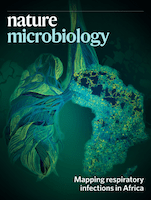
Nature Microbiology
Illuminating the Interplay of Microbes and HealthNature Microbiology is a premier journal published by NATURE PORTFOLIO that has firmly established itself within the realms of microbiological research since its inception in 2016. Based in the United Kingdom, this prestigious journal specializes in the intricacies of applied microbiology, cell biology, genetics, immunology, and medical microbiology, making it a cornerstone for academics and professionals alike. With an impressive Scopus ranking placing it in the top tier across various relevant categories—such as rank #3 in Genetics and #2 in Applied Microbiology—it underscores the journal’s commitment to high-quality, impactful research. Although it operates under a subscription model, Nature Microbiology's broad Open Access policy facilitates greater dissemination and visibility for its authors. The journal's objectives are centered around publishing cutting-edge advancements that enhance our understanding of microbial life, its interactions, and applications in health and disease. As a Q1 journal across multiple disciplines, it holds immense significance for researchers, professionals, and students enthusiastic about the latest innovations and breakthroughs in microbiology.
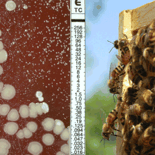
mBio
Elevating research visibility for the global scientific community.mBio is a premier, peer-reviewed open-access journal published by the American Society for Microbiology, dedicated to advancing the field of microbiology and virology. With an impressive impact factor and a commendable standing within the top quartiles (Q1) of both microbiology and virology categories as of 2023, mBio offers a dynamic platform for researchers and professionals to disseminate high-quality, rigorous scientific findings. Since its inception in 2010, it has served as a vital resource for the global scientific community, facilitating open access to groundbreaking research that spans diverse topics within microbiology. With a Scopus ranking of #28 out of 182 in Microbiology and #16 out of 80 in Virology, mBio significantly influences ongoing research trends and informs best practices in the field. Its commitment to open-access publishing allows for widespread visibility and accessibility, ensuring that critical discoveries reach a broad audience, including students and academics eager to contribute to, and learn from, cutting-edge science.